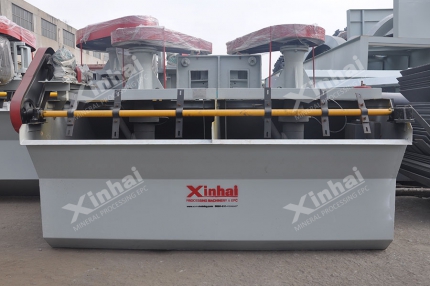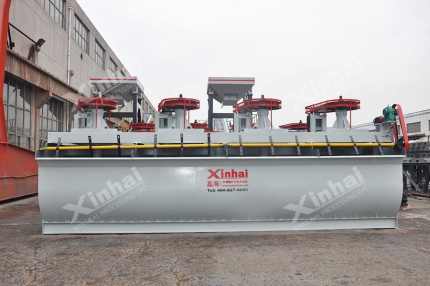Graphite has the characteristics of high temperature resistance, strong electrical and thermal conductivity due to its special structure. At the same time, graphite also has stable chemical and physical properties, so it has been widely used in various industries, such as metallurgy, machinery, textile and national defense. Natural graphite ore can be divided into two types: crystalline graphite and cryptocrystalline graphite. Different types of graphite require different beneficiation methods. Because graphite has good natural floatability, it is often processed by the flotation process. The following will introduce you to the flotation processes, equipment and reagents of these two graphite ores.
Use the table of contents below to navigate through the guide:
01Crystalline graphite ore flotation process
Both dense crystalline graphite and flake graphite belong to crystalline graphite. The content of dense crystalline graphite ore is small in nature, and its development and utilization is not large. However, the dense crystalline graphite ore has high grade and can generally be used after hand selection.
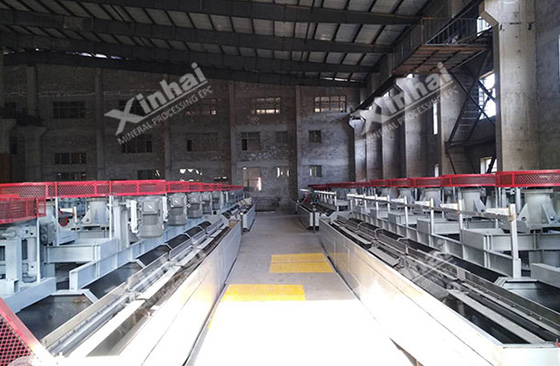
The performance of flake graphite ore is related to the size of its scales. The larger the scales, the higher the quality of the ore. In order to protect graphite flakes, ore quality and recovery rate, multi-stage grinding and multiple flotation processes are usually used to separate large flake graphite in time. Rod mills and packed flotation machines can be used to separate large flake graphite ores to improve concentrate quality and recovery rate. For fine flake graphite ore, multi-stage intensified grinding can be carried out to gradually dissociate the ore to facilitate subsequent flotation operations.
02Crystalline graphite ore flotation equipment
There are many types of flotation machines currently used in the technology, which can be divided into three types: mechanical agitation flotation machine, compressed air flotation machine and combined flotation machine. Mechanical agitation flotation machines mainly rely on impellers or mechanical stirrers for aeration and stirring. There are no moving parts in the compressed air flotation machine, and it mainly relies on air pressure from the outside for aeration and stirring. The working principle of the flotation column is similar to this. This type of compressed air flotation machine works reliably, but its stirring ability is weak and its consumption of chemicals is large. The combined flotation machine is a combination of mechanical agitation and compressed air flotation machines. The impeller is mainly used to stir and distribute the slurry. The amount of air sucked in is small and it mainly relies on the air compressor to supply it.

03Crystalline graphite ore flotation reagents
Collectors, frothers, regulators and surfactants are mainly used in the flotation process of graphite ore.
1. Collecting agent: Non-polar oil is a commonly used collecting agent for graphite ore flotation, such as kerosene, diesel, heavy oil, etc. Among them, kerosene and diesel are the most widely used collectors for graphite mineral processing. They have good collection effects and are cheap. The collector of hydrocarbon oil is difficult to decompose and dissolve. A large dosage is required during flotation. It needs to be emulsified to reduce the dosage and improve flotation efficiency. Commonly used emulsification methods include aerosol method, ultrasonic method, and mechanical method, stirring method, steam emulsification method, etc.

2. Foaming agent: Foaming agent can make the foam more stable. Commonly used agents mainly include active substances such as alcohols, phenols, postal sulfonate esters and sulfate esters, such as No. 2 oil, No. 4 oil, etc. These agents can effectively improve the flotation recovery rate and mineral processing efficiency.
3. Adjuster: Adjuster mainly plays the role of inhibition and activation, and is used to adjust pH value, agglomerate and disperse mineral mud, mineral surface activation, etc. Lime, sodium carbonate, sodium hydroxide, etc. are agents used to adjust the pH value of the slurry. Water glass is a commonly used silicate mineral inhibitor. Commonly used activators are sodium petroleum sulfonate, sodium lauryl sulfate, etc. If the graphite ore contains pyrite, lime is used as a pH adjuster.
4. Surfactants:The adhesion of hydrocarbon oil on the graphite surface is closely related to the wettability of the graphite surface. If there is surfactant in the mineral slurry, the molecules of the surfactant will be oriented and arranged on the surface of the mineral particles and foaming, which is beneficial to the adhesion and foaming mineralization of hydrocarbon oil on the surface of the mineral particles.

04Cryptocrystalline graphite ore flotation process
Cryptocrystalline graphite ore has high grade but poor floatability. It generally requires simple hand selection and then fine grinding and classifying to obtain the finished product. A few require beneficiation. The main methods to improve the quality of cryptocrystalline graphite include high-temperature alkali method, pickling method, chlorine roasting method, hydrofluoric acid method and other chemical methods, or a combination of the two. The mineral processing process usually involves multiple grinding and beneficiation.
Hydrophobic flocculation flotation and selective flocculation are relatively new methods that have been developed in recent years. After flotation of cryptocrystalline graphite through hydrophobic flocculation, the fixed carbon content increases greatly and the recovery rate is also high. The process of selective flocculation is relatively simple, the production cost is low, and the effect is good.
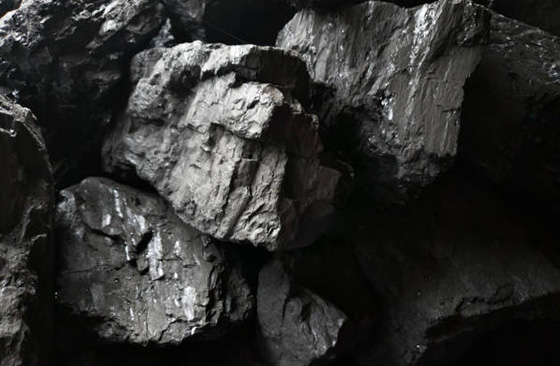
The above is a brief introduction to the flotation process, equipment and reagents of crystalline graphite ore and cryptocrystalline graphite ore. From the above, it can be seen that different types of graphite require different beneficiation methods for recovery. Xinhai Mining recommends conducting beneficiation tests to determine the characteristics of graphite ores, and customizing the design of beneficiation plans and equipment to improve the beneficiation efficiency and economic benefits of the beneficiation plant.


 marketing@ytxinhai.com
marketing@ytxinhai.com  0086 13810327080
0086 13810327080 




























































































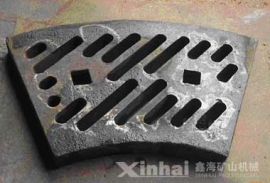









 CHAT
CHAT MESSAGE
MESSAGE




